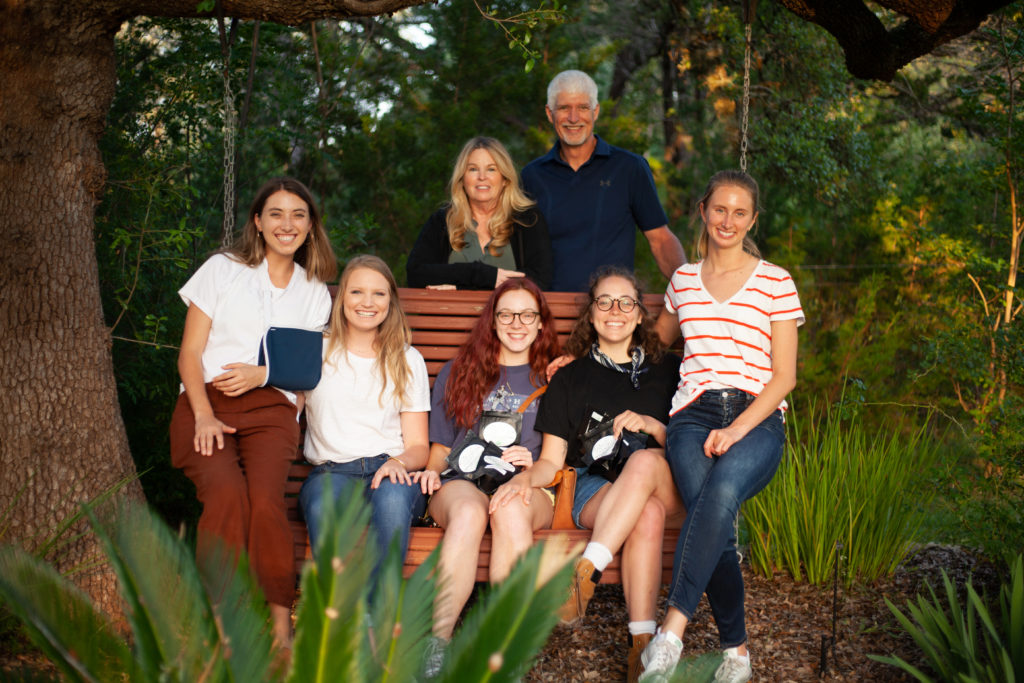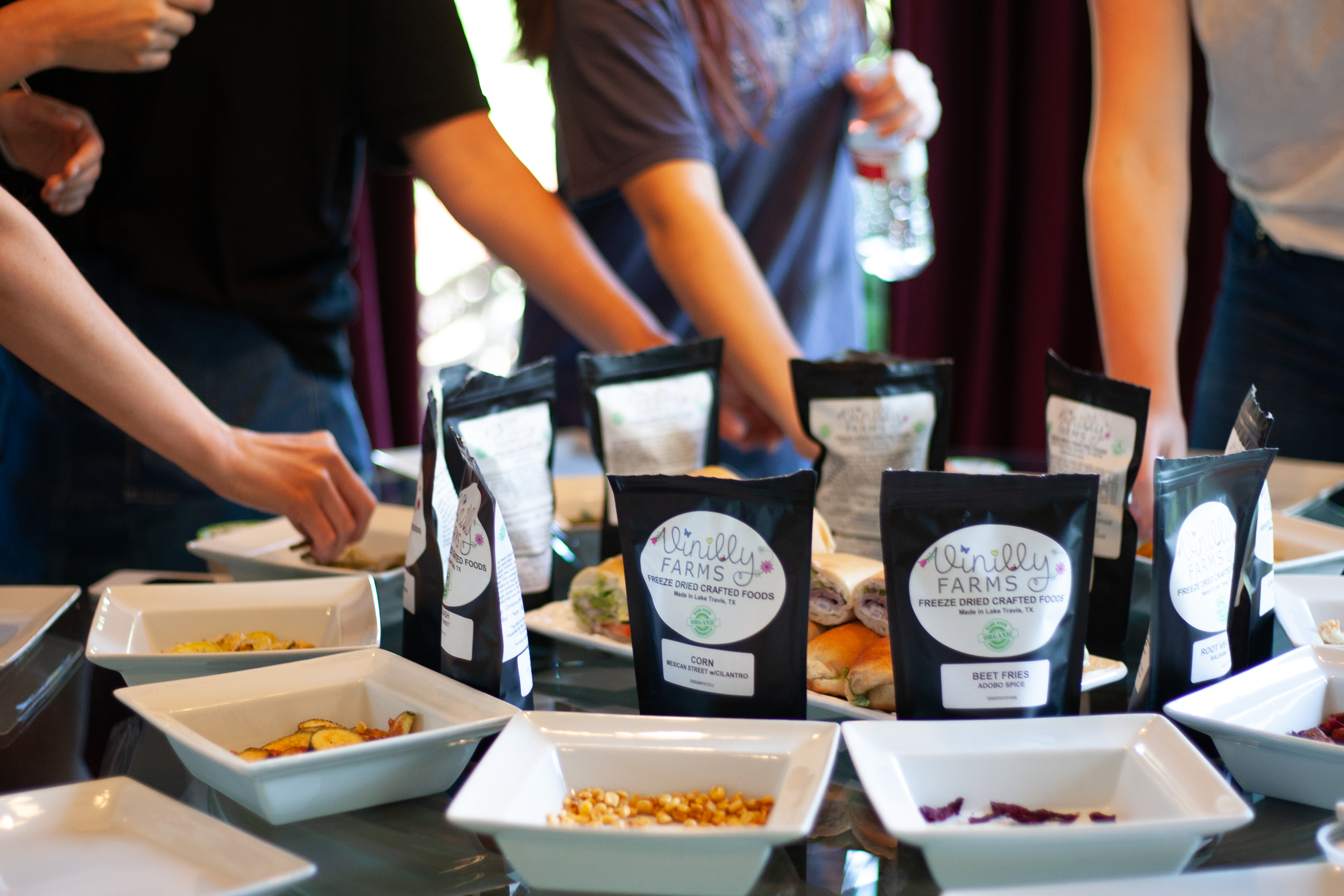After witnessing human trafficking in Thailand, this University of Texas student started Pedal the Pacific to spread awareness of trafficking in the United States.
By Brianna Caleri

Courtesy of Pedal the Pacific
Cycling might have absolutely nothing to do with raising awareness about the issue of sex trafficking. And that’s precisely why it works. When Grace Pfeffer worked in Thailand the summer after her sophomore year at the University of Texas, she lived a few blocks from a red-light district and got to know the Thai women working there. Although they weren’t being held against their will, the money they earned was too good to turn down, and Pfeffer says the women often didn’t think they had other viable options for earning money. She worked at a café that offered jobs to red-light-district workers, enabling them to make a living outside of a system in which they were cleverly exploited.
“A lot of them are there, [in their view,] by choice,” Pfeffer says. “They’re there because they’re trying to send their sister to college because they didn’t have that opportunity. They want to send support back to their families.”
After Pfeffer returned to Austin, she started looking for ways help women like those she met abroad. After a couple internships with companies providing women opportunities to make a fair wage, she discovered The Refuge for DMST, or domestic minor sex trafficking, where she now works full time. Just outside of Austin, The Refuge Ranch is a long-term rehabilitation community for sex-trafficking survivors. Offering an innovative, holistic approach to healing, the center accepts girls 19 years old or younger, can house as many as 48 girls and offers trauma-informed medical and social care.
One day during Pfeffer’s internship, her roommate, Savannah Lovelace, and their friend Sara Belmer realized while at a coffee shop that not many people know sex trafficking exists in the United States. Those who do often hold notions that are clouded with misconceptions and inaccurate data. Like Pfeffer, many Americans are introduced to the problem of sex trafficking while abroad, but they don’t always extend the revelation to what’s happening at home.
The three college women were about to graduate and decided to do something that would shock their friends and family into deeper discussions about sex trafficking. They brainstormed something completely out of character: a bike trip down the Pacific coast. The three unexperienced cyclists decided to buy bikes and raise money for The Refuge, which was just getting started and needed help with construction.
“If we were cyclists,” Pfeffer says, “and we said, ‘We’re going on this trip!’…no one would need to ask a question.”
Now the trip, called Pedal the Pacific, is in its third year, and while the riders have changed each year, the purpose and beneficiary remain the same. This summer, a team of 10 college-age women from throughout the United States with little to no biking experience is cycling out from Seattle June 8 and finishing in San Diego July 22. The girls will ride, camp, stay with host families and accept occasional meals at restaurants contributing to the cause. Once they hit the road, the riders’ main job, more than completing a long bike ride, is to raise awareness along the way.

Courtesy of Pedal the Pacific
According to Pfeffer and Lovelace, the two founders who stayed in Austin (Belmer now lives in New York City), there are several reasons people in the United States are uninformed about the issue of trafficking. Regardless of public interest, statistics are obscure and unreliable. Researching sex trafficking takes time and resources, especially in widening the scope of the research to include questions about the background and vulnerability of victims. Lovelace works at the National Center for Missing and Exploited Children, whose staff counsels victims through a human-trafficking hotline and gathers data about the topic. The accuracy of the information accessed by the NCMEC and The Refuge, coming from self-reported survivors, far surpasses most of what can be found with a Google search.
“You hear about these girls and boys that are in these situations and they stayed because their trafficker—even though they sold them to hundreds of people—they let them choose what they wanted for dinner,” Lovelace says.
Often, common stories—a girl just out of foster care finally breaks up with her manipulative boyfriend, for instance—are not deemed newsworthy, Lovelace and Pfeffer say. The most dramatic stories about stings, mass kidnappings and illegal border crossings dominate headlines, despite being a minority of cases. This leaves the public with the feeling that trafficking scenarios are random, unpreventable acts and not very relevant to their own lives. Yet as manipulation moves to the online world, it’s more relevant to a greater number of people than ever.
“We’re welcoming people into our homes just by having a phone,” Lovelace says. “Now it’s not just the most vulnerable children who go through these things. It could be anybody.”
A 2016 study by the University of Texas found that in Texas alone, there were nearly 79,000 minor or youth victims of human trafficking, and close to 234,000 affected adults. According to NCMEC, 86 percent of child victims were in foster care or recipients of social services when they went missing.
These are the statistics the Pedal the Pacific team wants people to hear. They want their ride to start conversations based on accurate, attention-grabbing ground. The key to getting the word out is the riders, who are carefully chosen for their curiosity and commitment to the cause, resilient attitudes and ability to convey the facts. The riders all ask for financial support from friends and family before the ride, but that’s only half the job. They also talk to media and host families, business owners and other riders they meet on the road. The founders send out weekly emails with training tasks (such as increasing mileage and off-bike conditioning) and useful articles with concrete statistics to quote.
Even though the riders don’t start out with the same level of knowledge about sex trafficking (some start with none at all but a desire to learn), the diversity is what keeps Pedal the Pacific alive. The yearly turnover ensures a broader reach, as the riders educate people they meet along the way plus their own social circles with varying levels of sex-trafficking knowledge. Despite representing a heavy topic, the fun of the ride is crucial to its impact. An approachable group embarking on an exciting adventure is a much more accessible point of entry to most than a solemn talk that shames people for not already being more informed.
The Refuge welcomed its first residents this year, which means it’s the first year the women participating in Pedal the Pacific are riding to support specific residents. Money raised this year will go to scholarships to bring in more residents when government grants don’t cover costs. Mass community support raises tens of thousands of dollars, but the person-to-person connection between the founders, the riders, the residents and people met on the road gives Pedal the Pacific its magic.

By Brianna Caleri
It’s a few weeks before they’ll start pedaling, and the Austin women—the two local founders and the three women from Austin on this year’s ride—stand around a table in a home by Lake Travis, rating their favorite portable snacks to bring on the road. The house belongs to Charles and Cynthia Gault, volunteers at The Refuge, and doubles as the headquarters of Vinilly Farms, the couple’s freeze-dried food company.
The Gaults are donating more than 400 bags of preservative-free, travel-ready snacks like chipotle green beans, garlic Parmesan squash and beet fries, along with full meals the women have cooked using their own recipes, ready to be reconstituted and sampled. Freeze-dried food retains about 97 percent of its original nutrients, as opposed to dehydrated food, which retains closer to 60 percent. The Gaults have four freeze dryers that can process 60 pounds of food at once and will be working full time for the next week to provide the riders with snacks, meals and desserts.
“It tastes like I just made it,” says one of the cyclists, Christina Van Essen, trying her green chile chicken. The freeze-drying process concentrates the chile flavor in all the stewed vegetables. “It almost tastes better.”

The team’s vegan rider, Sarah Evans, tries a vegan enchilada casserole and runs down recipe options that also avoid gluten with the Gaults, who want to make sure she has full meal options like the other riders. The third rider, Chloe Stringer, nibbles appreciatively while waiting for her lasagna to reconstitute, her red-pink hair glowing in the natural light. She dyed it as a donation incentive.
Pfeffer and Lovelace, who are thrilled to see the riders together before they all ship off, emphasize how grateful the riders will feel to retreat into their tents in Northern California with warm, home-cooked food. They giggle and groan at memories of endless burgers and Taco Bell feasts, before the trip had this kind of organizational support.
Even more striking than the vibrant, healthy food is the glow at the Gaults’ house of support and excitement for the ride. The 2019 riders, who have just shipped their bikes out to wait for them at the starting line, chat about their training and receive some honest reassurance from the founders: You’ll never really be ready, but you’ll get better as you go. Pfeffer explains on such a long ride, each day is training for the next.
Moments like this are also practice for the realities of the road: chatting about cycling, sharing anxieties and excitement, enjoying the hospitality of supporters, munching on camp food. Their energy fills the house with the giddiness of an upcoming trip and the unique sense of purpose of a group of young women on a mission.


